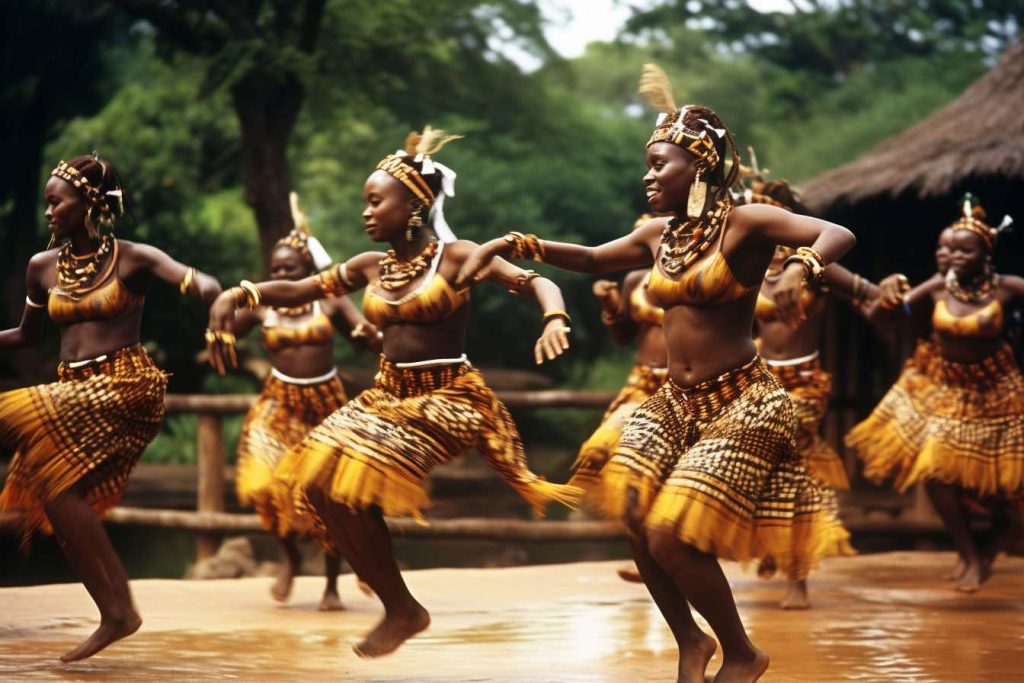Every beat of Tanzanian traditional music tells a story, resonating with the vibrant culture and history of the nation. The polyrhythmic drumming and the haunting melody of the taarab music reflect the rich tapestry of Tanzania’s diverse ethnic groups. You can almost hear the whispers of the past blending seamlessly with the pulsating rhythm of life today.
Traditional Tanzanian music is a testimony to its heritage, with genres like Ngoma dating as far back as the pre-colonial era. Over 120 tribes contribute to this musical diversity, each adding unique elements to the Tanzanian soundscape. According to some estimates, Tanzania has preserved more than 200 musical styles, transforming any deep dive into its music into a cultural exploration.

Experience the Traditional Music of Tanzania
Traditional music in Tanzania is a vibrant reflection of the country’s diverse culture. It brings together melodies and rhythms from over 120 ethnic groups, telling stories of history and daily life. Instruments like the ngoma drum and marimba are commonly used to create lively beats. Festivals are a great way to experience these sounds first-hand. According to this post, the Bagamoyo Arts Festival offers an incredible showcase of traditional music and dance.
One popular genre is taarab, blending African, Arab, and Indian influences for a unique musical experience. It’s often played at weddings and celebrations, creating an atmosphere of joy and unity. This style of music highlights the cultural exchanges that have shaped Tanzania over the years. Audiences are drawn to the powerful vocals and intricate instrumentals. Tanzanian music has evolved, yet keeps its roots firmly in tradition.
Another notable aspect of Tanzanian music is its role in social gatherings and festivals. These are times when communities come together to celebrate and preserve their heritage. Traditional dances often accompany the music, adding a visual element to the cultural expression. Each region has its own distinct style, contributing to the country’s rich musical landscape. According to the article here, festivals like the Sauti za Busara in Zanzibar showcase these diverse musical flavors.
The impact of Tanzanian traditional music extends beyond entertainment. It is an important tool for teaching younger generations about their history and values. Music events often become opportunities for storytelling and passing down of traditions. As the world becomes more connected, Tanzanian artists are sharing their sounds with global audiences. This cultural exchange continues to enrich worldwide appreciation for African music.
The Cultural Significance of Tanzanian Traditional Music
Tanzanian traditional music plays a vital role in preserving the history and culture of its people. It serves as an oral record, capturing stories and events that aren’t written down. Through lyrics and melodies, music tells tales of past generations and important historical moments. These musical narratives foster a sense of identity and belonging among Tanzanians. They remind listeners of their roots, connecting them to their ancestry.
The impact of traditional music extends to social interactions and community bonding. Music often accompanies celebrations such as weddings, births, and harvests, marking significant milestones. These events create opportunities for people to come together, reinforcing social ties and relationships. The rhythmic beats and choruses invite participation, encouraging everyone to join in the celebration. Through dance and song, communities strengthen their bonds in joyful communion.
Traditional music also functions as an educational tool. It imparts lessons and values to younger generations in a way that’s engaging and relatable. Many songs emphasize moral teachings or provide guidance on navigating daily life. This kind of learning ensures that cultural wisdom is passed down effectively. Listening and participating in music become ways to internalize important societal values.
Today, traditional Tanzanian music continues to influence contemporary genres. Musicians incorporate traditional instruments and themes into modern styles, creating new and exciting fusions. This blend of old and new connects past with present, resonating with both local and international audiences. As these influences spread, they bring Tanzanian culture to the global stage. This cultural exchange enriches the world, sharing Tanzania’s rich heritage with audiences everywhere.
Explore the Different Genres of Tanzanian Music
Tanzanian music is a rich tapestry of diverse genres. One popular genre is bongo flava, a contemporary style that blends hip hop, reggae, and traditional African rhythms. Artists like Diamond Platnumz and Ali Kiba have taken it to international stages, attracting fans worldwide. The catchy beats and relatable lyrics resonate with many listeners. This genre reflects modern youth culture while embracing traditional elements.
Another genre is taarab, which is deeply rooted in the coastal areas of Tanzania. It features a fusion of African, Arab, and Indian influences, creating a unique sound. Taarab music often accompanies celebrations, with melodious tunes and poetic lyrics adding to the festive aura. Instruments such as the oud, violin, and qanun are commonly used. These sounds create an enchanting musical experience for everyone present.
The traditional genre of ngoma plays a crucial role in Tanzanian culture. This genre encompasses various styles of drumming, dance, and song. Often, ngoma performances are tied to important social and cultural events such as harvests or initiations. The powerful rhythms and vibrant dances have been passed down for generations. This connection to heritage keeps the music alive and thriving.
Jazz music in Tanzania is also gaining popularity, especially in urban areas like Dar es Salaam. Local musicians have started blending jazz with traditional tunes, creating fresh and innovative sounds. Jazz festivals are now celebrating this evolving scene, attracting both local and international talent. This musical fusion captivates audiences with its blend of sophistication and cultural depth. Jazz continues to enrich the Tanzanian music landscape.
Key Takeaways
- Tanzanian traditional music captures the country’s rich history and diverse culture.
- Bongo flava blends hip hop, reggae, and traditional African rhythms.
- Taarab features African, Arab, and Indian influences with poetic lyrics.
- Ngoma incorporates drumming, dance, and song in cultural events.
- Jazz is gaining popularity by blending modern and traditional sounds.
Conclusion
Exploring the traditional music of Tanzania offers a unique insight into the country’s soul, reflecting its diverse heritage and cultural richness. The intricate blends of genres like bongo flava and taarab demonstrate the creative fusion between old and new. This musical evolution continues to influence global audiences, establishing Tanzania as a cultural beacon.
Preserving these vibrant musical traditions remains vital to maintaining cultural identity and fostering community connections. As Tanzanian music gains more global recognition, it plays a pivotal role in promoting cross-cultural understanding. There is no doubt that Tanzania’s musical legacy will continue to inspire and resonate worldwide.

